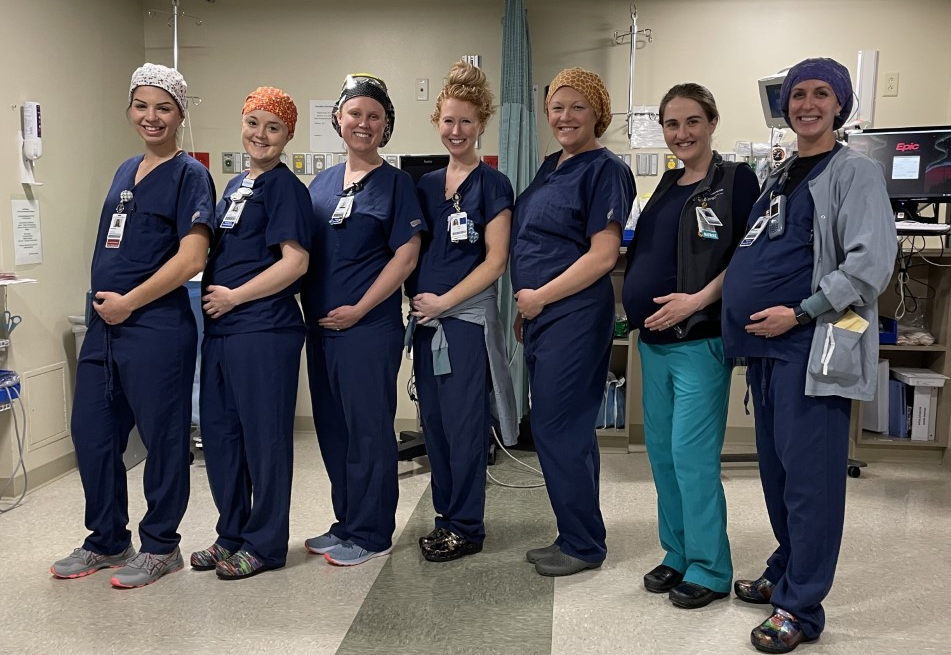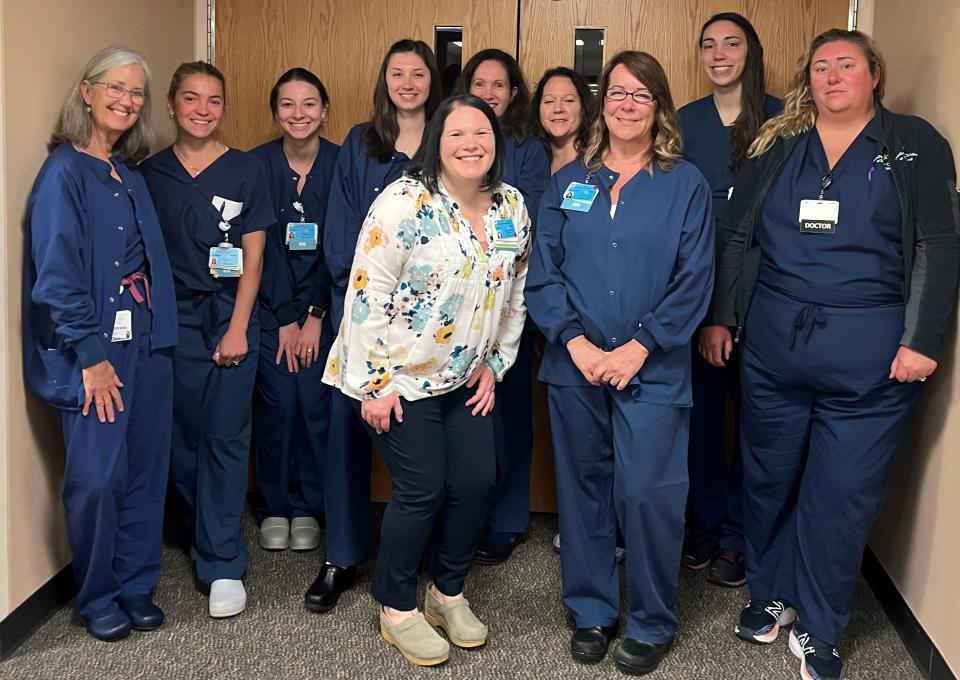Baby boon, caring for newborns exposed to opiods: Seacoast health news
Wentworth-Douglass Hospital OR experiencing baby boon

DOVER – There is a baby boon among the operating room staff at Wentworth-Douglass Hospital. The department currently has nine staff members who are pregnant, and a tenth who just gave birth earlier this month.
The women include a wide-variety of health care professionals including registered nurses, nurse anesthetists, surgical technologists, anesthesia technicians, and nurse practitioners.
The team isn’t sure “why now”, but most are first-time moms (just three have given birth before) and more girls are expected than boys.
The hospital does not expect staffing levels will be disrupted by the many-maternity leaves.
New clinical trial identifies a more effective way to care for newborns exposed to opioids in the womb

EXETER — The “Eat, Sleep, Console” care approach is more effective than the usual care approaches for treating opioid-exposed infants, according to data collected at The Family Center at Exeter Hospital. Exeter is one of 26 hospitals participating in a nationwide clinical trial funded by the National Institutes of Health.
Eat, Sleep, Console provides a function-based assessment of withdrawal severity centered around how well an infant can eat, sleep, and be consoled. ESC prioritizes non-pharmacologic care, including increased family presence, holding, swaddling and rocking in low-stimulus environments as first line treatment.
Opioid-exposed newborns can develop symptoms of neonatal opioid withdrawal syndrome, which includes tremors, excessive crying and irritability, and problems with sleeping and feeding.
The ESC care approach substantially decreased the time until infants were medically ready for discharge. Newborns cared for with ESC were medically ready for discharge approximately 6.7 days earlier and were 63% less likely to receive opioid drug therapy, compared to newborns cared for under the usual approach using traditional scoring methods. Safety outcomes at three months of age were similar between both groups. The current findings are published in the New England Journal of Medicine.
These findings are based on three-month outcomes. A two-year follow-up study of a subset of the infants is ongoing. This follow-up is critical to further inform the safety of the ESC care approach.
The ESC care approach was developed about eight years ago but before this trial it hadn’t yet been rigorously evaluated in a large and diverse population of infants with NOWS. Exeter Hospital is one of 26 sites participating in the trial, enrolling 1,305 infants, which is a collaborative effort between the NIH’s Eunice Kennedy Shriver National Institute of Child Health and Human Development (NICHD) and the NIH Environmental influences on Child Health Outcomes (ECHO) Program. The trial is funded by the Helping to End Addiction Long-term Initiative, or NIH HEAL Initiative®—a trans-agency effort to speed scientific solutions to stem the national opioid crisis.
This article originally appeared on Portsmouth Herald: Baby boon, caring for newborns exposed to opiods: Seacoast health news

